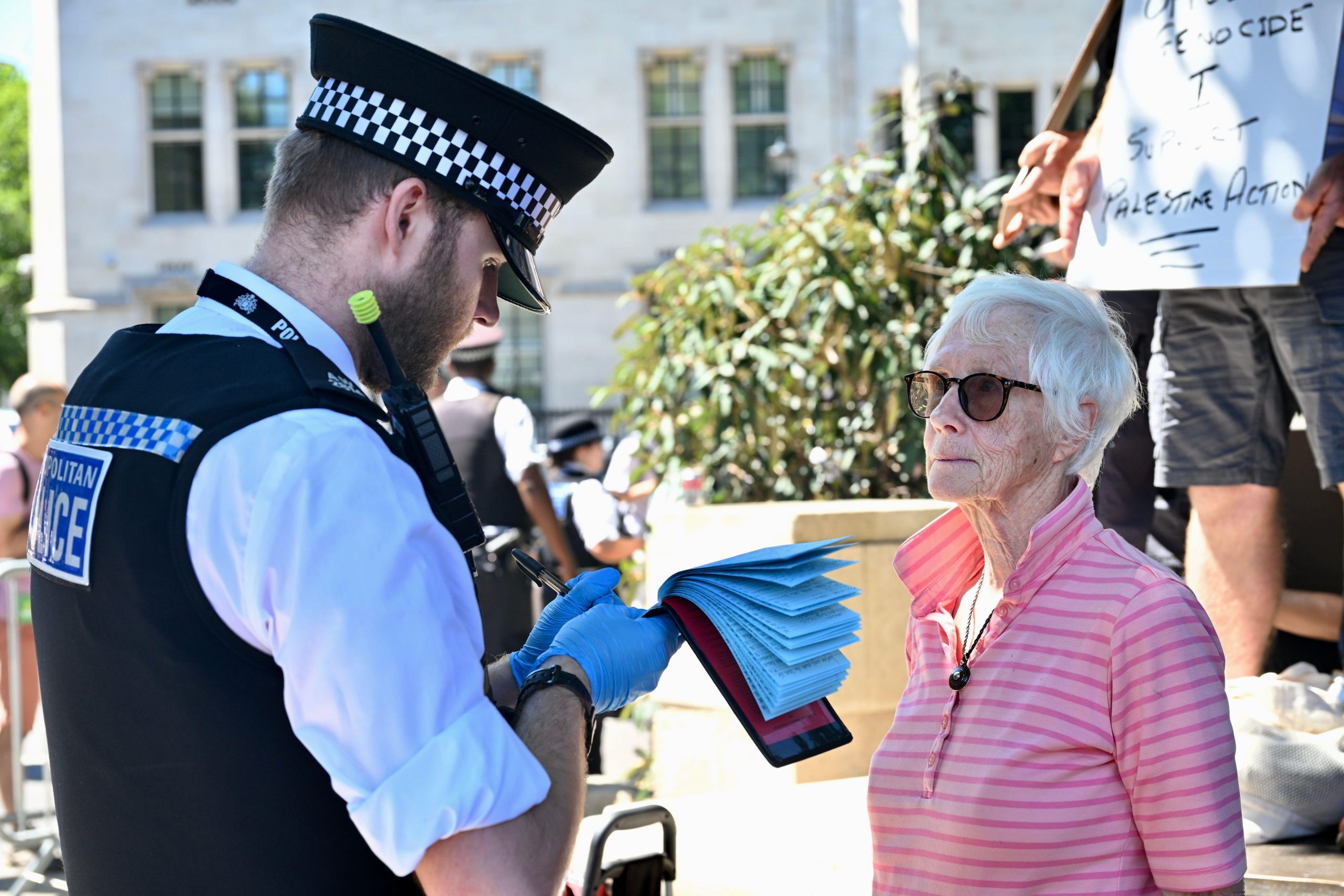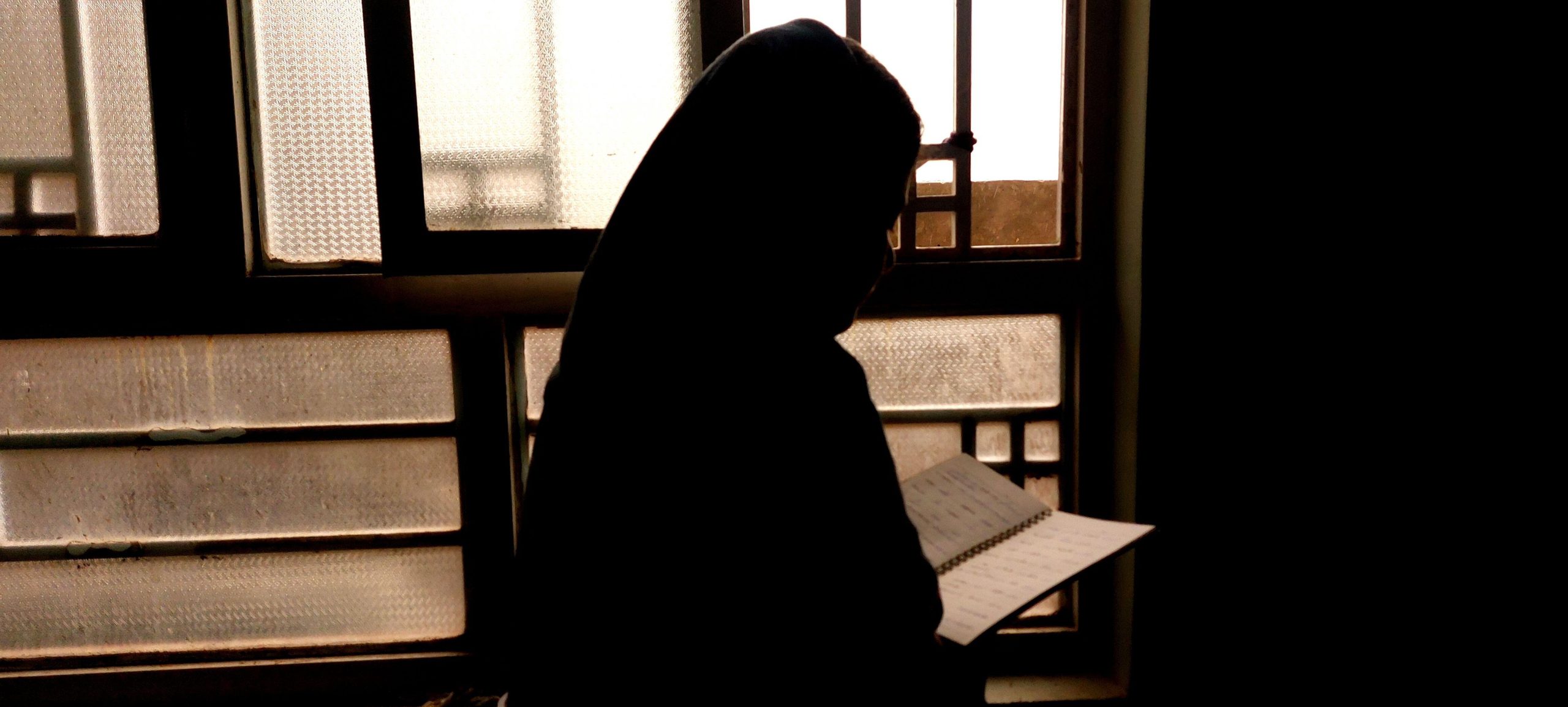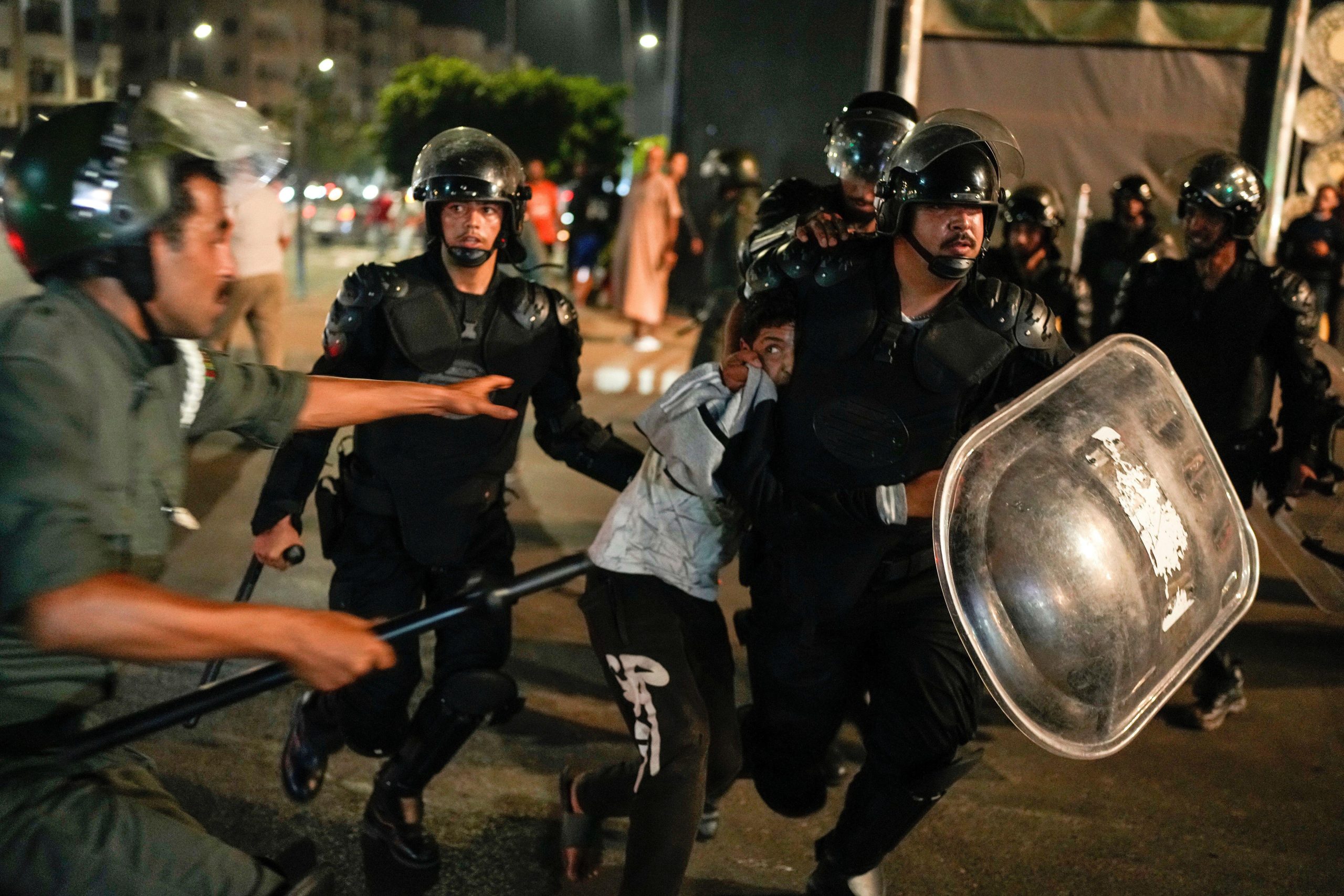In the age of online information, it can feel harder than ever to stay informed. As we get bombarded with news from all angles, important stories can easily pass us by. To help you cut through the noise, every Friday Index publishes a weekly news roundup of some of the key stories covering censorship and free expression. This week, we look at how UK police are interpreting the proscription of Palestine Action, and the detention and extradition of a Beninese government critic.
An oppressive interpretation: Kent woman threatened with arrest over Palestine flags
On 1 July 2025, UK Home Secretary Yvette Cooper proscribed Palestine Action, a pro-Palestinian activist group founded in 2020, calling it a “dangerous terrorist group”. The move, which sees PA’s name added to this list, was made after two members of the organisation broke into RAF Brize Norton airbase on scooters and defaced two military planes with red paint, the latest in a long line of actions taken by the group to halt proceedings at locations and factories they believe to be aiding Israel’s offensive in Gaza. Proscription means that joining or showing support for Palestine Action is punishable by up to 14 years in prison.
The Home Secretary’s decision has provoked controversy. The move has been described by Amnesty International as “draconian” and a “disturbing legal overreach”. Since the ruling, over 70 protesters have been arrested for displaying signs showing direct support for Palestine Action, and numerous lawyers, UN experts and human rights groups have voiced concerns that the vague wording of the order could be a slippery slope into more general support for the pro-Palestinian cause being punished.
On Monday 14 July, peaceful protester Laura Murton was holding a Palestinian flag as well as signs that read “Free Gaza” and “Israel is committing genocide”, when she was threatened with arrest under the Terrorism Act by Kent police. Despite showing no support for Palestine Action, she was told by police that the phrase “Free Gaza” was “supportive of Palestine Action”; police were recorded by Murton stating that “Mentioning freedom of Gaza, Israel, genocide, all of that all come under proscribed groups, which are terror groups that have been dictated by the government.” She was made to provide her name and address, and was told that if she continued to protest, she would be arrested.
Murton told the Guardian that it was the most “authoritarian, dystopian experience I’ve had in this country”. Labour’s Minister of State for Security Dan Jarvis seemed to condemn the incident, stating “Palestine Action’s proscription does not and must not interfere with people’s legitimate right to express support for Palestinians.”
Defying refugee status: Beninese journalist forcibly detained and extradited
On 10 July, Beninese journalist and government critic Hughes Comlan Sossoukpè was arrested in a hotel room in Abidjan, Cote d’Ivoire and swiftly deported back to Benin, in violation of his status as a refugee.
Sossoukpè, who is the publisher and director of online newspaper Olofofo, had been living in exile in Togo since 2019 due to threats received regarding his work criticising the Beninese government and has held refugee status since 2021. He had reportedly been invited to Abidjan by the Ivorian Ministry of Digital Transition and Digitalisation to attend a forum on new technologies – one of Sossoupkè’s lawyers accused Cote d’Ivoire of inviting him for the purpose of his capture.
Another of his lawyers, speaking to the Committee to Protect Journalists (CPJ), reported that Sossoupkè recognised two of the five police officers that arrested him as being Beninese officers rather than Ivorian. They allegedly ignored his request to see a judge, confiscated his personal devices and escorted him to a plane back to Benin.
On 14 July, Sossoukpè was brought before the Court for the Repression of Economic Offences and Terrorism (CRIET) in Cotonou, Benin, and charged with “incitement to rebellion, incitement to hatred and violence, harassment by electronic means, and apology of terrorism”. He has been placed in provisional detention in a civil prison, and numerous groups such as CPJ, Frontline Defenders, and the International Federation of Journalists have called for his unconditional release.
The crime of a Google search: Russia ramps up dissent crackdown under guise of “anti-extremism”
Russia’s lower chamber of parliament, the State Duma, passed legislation on 17 July that greatly extends the state’s ability to crack down on dissenters. Starting in September, in addition to criminalising taking part in activities or groups that the Kremlin deems “extremist”, you can be fined just for looking them up online.
Anti-extremism laws in Russia have long been used to crack down on organisations whose views do not align with the state’s; There have been over 100 extremism convictions for participating in the “international LGBT movement”, and lawyers who defended opposition leader Aleksei Navalny were also arrested and imprisoned on extremism charges. But with the new changes passed on Thursday, those who “deliberately search for knowingly extremist materials” will face fines of up to 5000 roubles, or around £47.
Extremist materials are designated by the justice ministry via a running list of over 5000 entries which includes books, websites and artworks. Other materials that could result in a fine include music by Russian feminist band Pussy Riot, articles related to LGBTQ rights, Amnesty International and various other human rights groups, pro-Ukraine art or works..
The ruling has been met with a backlash from politicians and organisations from across Russia’s political spectrum; the editor-in-chief of pro-Kremlin broadcaster Russia Today said she hopes amendments will be made to the legislation, as it would be impossible to investigate extremism if online searches are prohibited, while Deputy State Duma speaker Vladislav Davankov reportedly called the bill an “attack on the basic rights of citizens”.
The Taliban vs journalism: Local Afghan reporter detained
In the most recent case of the Taliban’s crackdown on journalism in Afghanistan, journalist Aziz Watanwal was arrested and taken from his home on 12 July alongside two of his friends in a raid by intelligence forces.
A local journalist of the Nangarhar province of eastern Afghanistan, Watanwal had his professional equipment confiscated. Despite his friends being released in the hours following his arrest, Watanwal is still in custody with no information regarding his whereabouts, and the Taliban reportedly gave no reason for his detention.
Since the Taliban seized power in Afghanistan in August 2021, journalistic freedoms have taken a sharp decline. Afghanistan Journalists Centre have reported that in the first half of 2025, press freedom violations increased by 56% compared to the same period in 2024. In the three years following the Taliban’s return to rule, Reporters Without Borders (RSF) reported that 141 journalists had been arrested for their work, and the country currently sits 175th out of 180 countries on RSF’s Press Freedom Index.
Censorship of an archive: Chinese tech corporation seeks closure of crucial social media archive
Chinese multinational tech conglomerate Tencent has launched legal action against censorship archive organisation GreatFire to take down FreeWeChat, a platform run by GreatFire that aims to archive deleted or blocked posts on prominent Chinese messaging and social media app WeChat.
WeChat is one of the most popular apps for Chinese citizens and diaspora, and posts on the platform critical of the government are frequently subject to censorship. FreeWeChat was created in 2016 in an effort to catalogue posts taken down by Chinese authorities, but it is now under threat from this legal attack by Tencent.
Tencent’s claim is that FreeWeChat’s use of “WeChat” in the domain is a trademark and copyright infringement, submitting a takedown complaint with this reasoning on 12 June. GreatFire rebutted the allegations, stating that they do not “use WeChat’s logo, claim affiliation, or distribute any modified WeChat software”, and claim that Tencent’s intent is to “shut down a watchdog”.
Martin Johnson, lead developer of GreatFire, stated that the organisation have previously dealt with state-sanctioned DDoS attacks, but they have outlined their intent to keep FreeWeChat up and running despite a takedown order from the site’s hosting provider.






